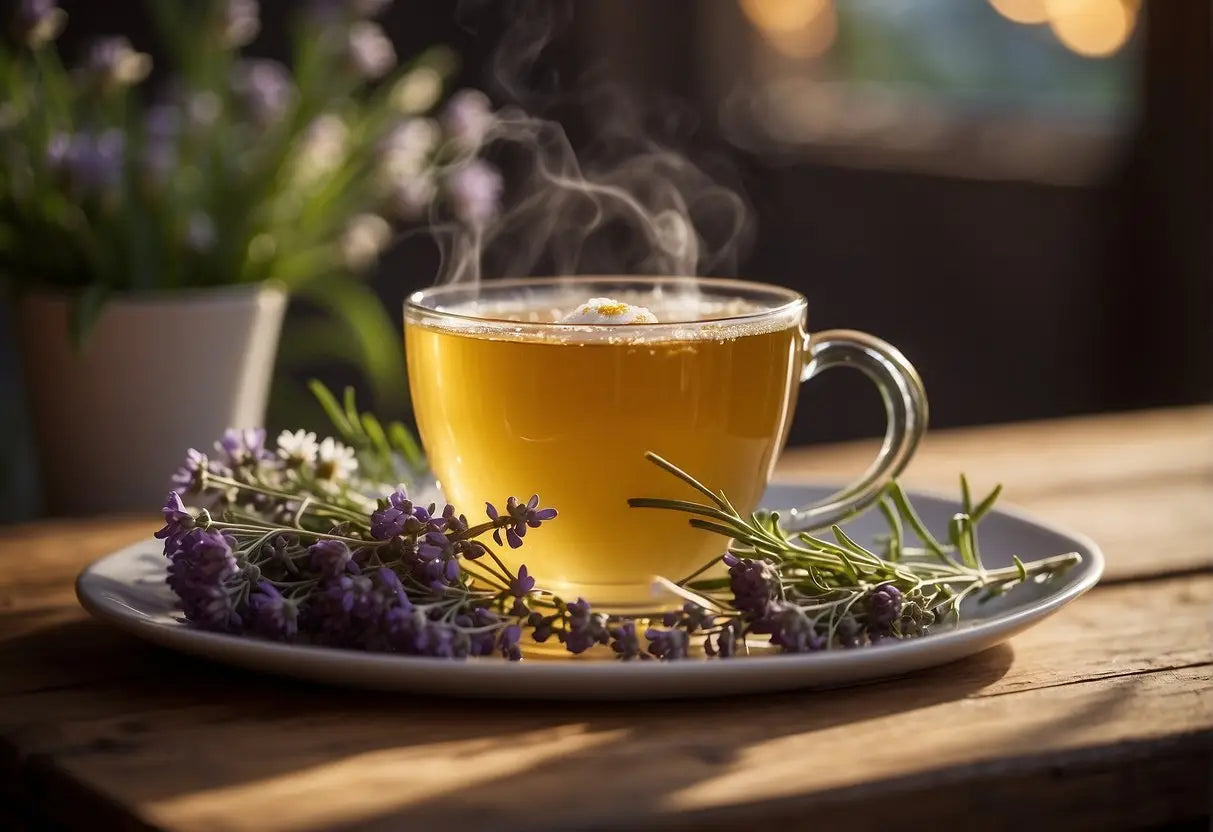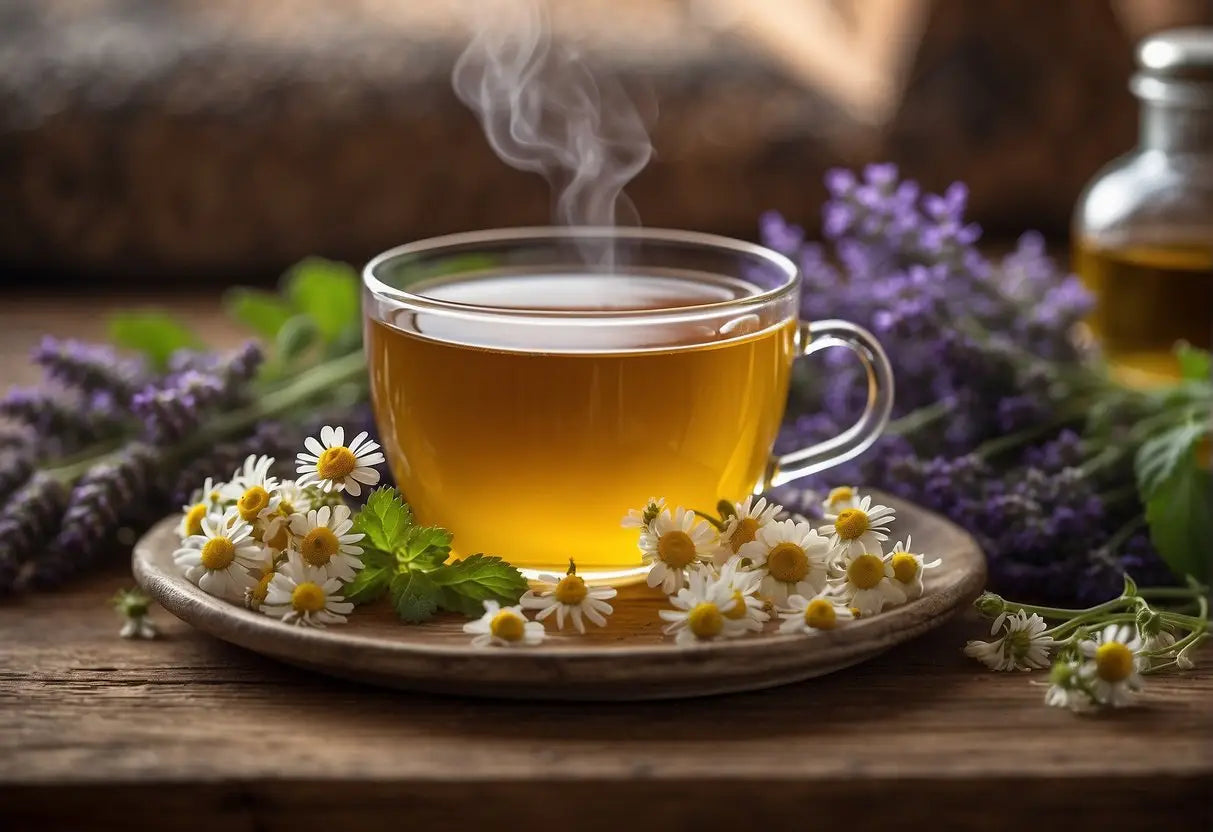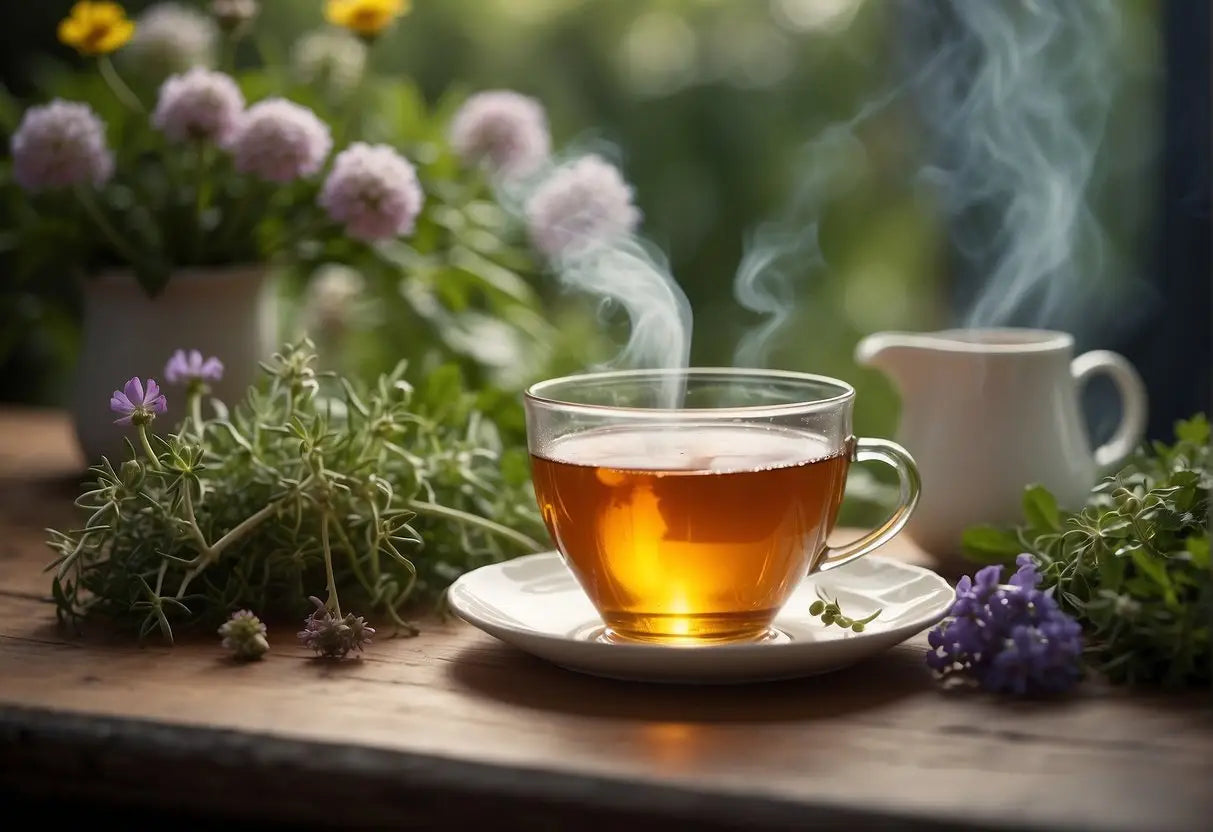What Tea is Good for Headaches
Headaches can be both debilitating and disruptive to your daily life. Among the various remedies, certain teas have properties that may help alleviate headache symptoms.
Types of Headaches
Headaches are generally classified into several types, each with its own set of causes, symptoms, and impacting factors:
- Tension Headaches: The most common form, characterized by a dull, aching sensation all over the head.
- Migraines: Often intense and throbbing, migraines can be accompanied by nausea and sensitivity to light or sound.
- Cluster Headaches: Marked by severe burning and piercing pain, they occur around or behind one eye and happen in series.
Benefits of Tea for Headaches
Tea can serve as a gentle yet effective approach to managing headaches. Here are specific teas and their properties:
Bestsellers
- Ginger Tea: Contains gingerol, which has anti-inflammatory properties to reduce pain.
- Peppermint Tea: The menthol in peppermint can relax muscles and ease tension headaches.
- Chamomile Tea: Known for its relaxing qualities that can help soothe stress-related headaches.
- Green Tea: Contains caffeine, which in moderation can provide relief from headache pain.
Best Teas for Headache Relief

Several teas are known for their natural pain-relieving properties. Choosing the right tea can provide you with soothing relief from a headache.
Ginger Tea
Ginger tea is renowned for its anti-inflammatory properties that can help reduce headache pain. To maximize the benefits, brew a strong cup of ginger tea and drink it at the onset of your headache symptoms.
Peppermint Tea
With a refreshing flavor, peppermint tea contains menthol, which can help relax muscles and ease tension headaches. Sipping on peppermint tea may alleviate pain and promote relaxation.
Chamomile Tea
Chamomile tea is commonly associated with relaxation and sleep. Its natural compounds may also help to reduce headache severity by combating inflammation and stress-related symptoms.
Lavender Tea
The scent of lavender tea alone can be calming, but drinking it also potentially offers headache relief. Lavender has natural sedative effects, making it a good option for stress-induced headaches.
Green Tea
Rich in caffeine and antioxidants, green tea can help with certain types of headaches. However, be cautious with your intake, as too much caffeine may lead to caffeine withdrawal headaches.
Preparing Tea for Headaches
When suffering from headaches, choosing the right tea and preparing it correctly may enhance its soothing properties.
Brewing Techniques
To extract the full benefits of tea for headaches, proper brewing is key. Use these methods:
- Green Tea: Heat water to about 175°F (80°C) and steep for 2-3 minutes.
- Ginger Tea: Boil fresh ginger slices in water for at least 10 minutes to release its compounds.
- Peppermint Tea: Use hot water, not boiling, and infuse for 5-7 minutes to avoid bitterness.
- Chamomile Tea: Steep in hot water for 4-5 minutes; using a covered vessel helps retain the essential oils.
Optimal Consumption Times
Timing can impact the effectiveness of tea in alleviating headache symptoms. Consider these suggestions:
- Upon First Notice: Drink at the onset of headache symptoms for potential mild relief.
- Regular Intervals: Sip small amounts at regular intervals rather than a large amount at once to maintain a consistent level of beneficial compounds in your system.
Complementary Remedies

In addition to tea, incorporating certain practices can enhance your relief during a headache.
Lao Ban Zhang
Hydration
Ensuring you are adequately hydrated is vital to headache relief. Dehydration can trigger or exacerbate headaches. Your daily goal should be:
- Women: About 2.7 liters (91 ounces)
- Men: About 3.7 liters (125 ounces)
Include fluids from water, other beverages, and food.
Rest and Relaxation
Quality rest and relaxation can significantly impact headache severity and duration. Try the following:
- Sleep: Aim for 7-9 hours per night.
- Relaxation techniques: Practice deep breathing or progressive muscle relaxation.
Diet and Nutrition
Nutritious food choices play a role in preventing and managing headaches. Your diet should be:
- Balanced: Incorporate a variety of foods from all food groups.
- Regular meals: Avoid skipping meals to prevent low blood sugar levels, which can trigger headaches.
Frequently Asked Questions

In this section, we address your concerns on how different teas can alleviate headache symptoms. Learn about herbal and homemade remedies, and the specific benefits they may provide.
Which herbal teas are recommended for relieving headaches?
Herbal teas such as feverfew, lavender, and ginger are commonly recommended for headache relief. They contain properties that can help reduce inflammation and provide a calming effect.
Can drinking green tea help soothe a headache?
Yes, green tea contains caffeine and catechins which may help in reducing headache pain. However, it should be consumed in moderation as excessive caffeine may lead to headaches for some individuals.
What homemade tea remedies can alleviate headache symptoms?
A homemade remedy of tea with fresh mint leaves or a mixture of cinnamon and clove can help soothe headache symptoms. These ingredients have analgesic properties that may reduce pain.
Does chamomile tea offer benefits for headache sufferers?
Chamomile tea is known for its calming effects, which may help reduce stress headaches. It possesses anti-inflammatory properties that could also provide relief.
How effective is peppermint tea in treating tension headaches?
Peppermint tea can be very effective for tension headaches due to its muscle-relaxing properties. The menthol in peppermint may help to relax muscles and ease pain.
Are there any benefits of ginger tea for individuals experiencing headaches?
Ginger tea may be beneficial as it helps reduce nausea that can accompany migraines and has anti-inflammatory effects that may alleviate headache pain.
← Older post Newer post →











